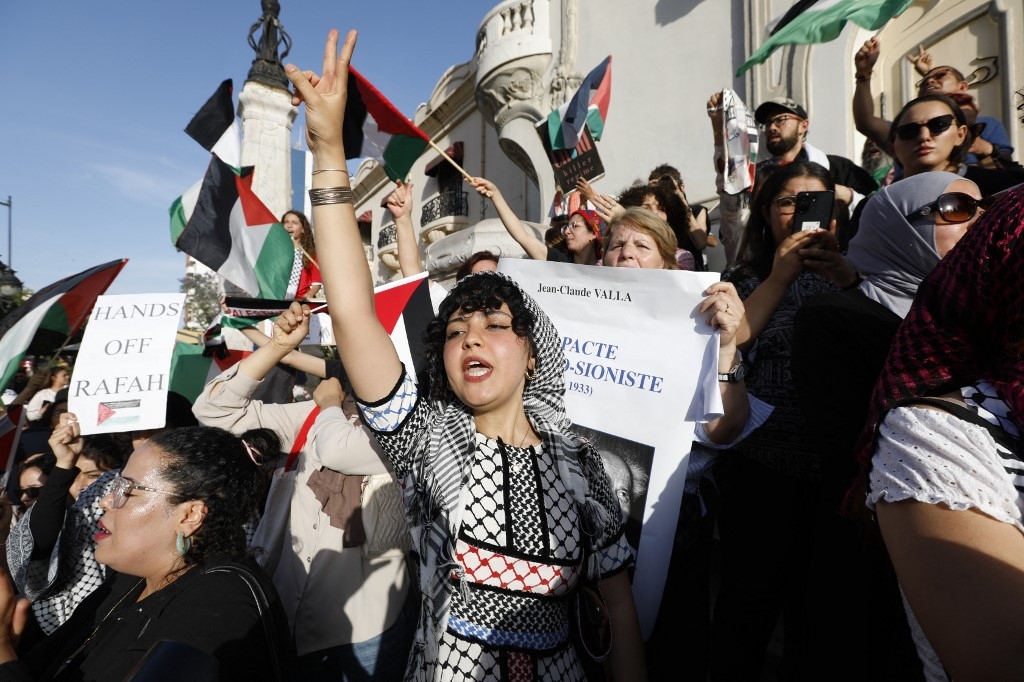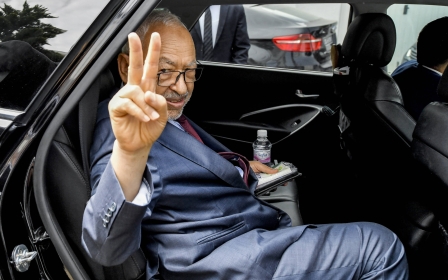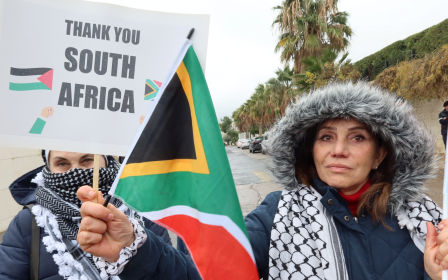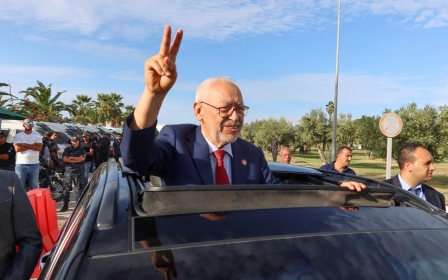Tunisia bans Palestinian keffiyeh in exam halls citing concerns over cheating

Tunisia's Ministry of Education has banned students from wearing the keffiyeh, a distinctively black-and-white checkered scarf symbolic of the Palestinian cause, inside examination halls, citing concerns it could influence their behaviour.
In a statement released on Sunday, the ministry responded to calls for wearing the iconic scarf during secondary education exams from 5 to 12 June. The ministry warned that "wearing the Palestinian keffiyeh or any other form of clothing that influences the behaviour of the baccalaureate candidate inside the examination halls is prohibited".
"The ministry will not hesitate to implement these penalties to preserve the integrity of our educational institutions", the statement read.
The ministry condemned attempts "by some to take advantage of [the Palestinian] cause to sow disorder during national examinations or to commit concealed offences", stating that such actions would be "dealt with in accordance with the law".
The press release also reaffirmed Tunisia's support for the Palestinian cause, "in accordance with the firm positions of the president of the republic and the orientations of the Tunisian state, which supports all oppressed nations in the world".
New MEE newsletter: Jerusalem Dispatch
Sign up to get the latest insights and analysis on Israel-Palestine, alongside Turkey Unpacked and other MEE newsletters
Tunisia's stance on Palestine
Tunisia has been engulfed in political and economic crises since 2021, when President Kais Saied unilaterally suspended the parliament and dissolved the government in what many have called a "constitutional coup".
The president subsequently ruled by decree, pushing through a new constitution that enshrined his one-man rule. Since then, the state has cracked down on critics, arresting opposition leaders, political activists, judges and lawyers on accusations of conspiring against national security.
Amnesty International has described the crackdown as a "politically motivated witch hunt".
Though the country has not followed some neighbouring Arab states in recognising Israel, the government has at times cracked down on pro-Palestinian figures.
In January, Tunisia implemented a travel ban on lawyer Chawki Tabib, who is part of the team representing the Palestinian Bar Association in South Africa's genocide case against Israel at the International Court of Justice (ICJ).
The Palestinian Bar Association appointed the Tunisian lawyer as a legal representative among a broader team of lawyers supporting South Africa's case.
Tabib was scheduled to attend preparation meetings in Kuwait in early January but was banned from leaving the country. According to the New Arab, this ban followed "a complaint filed against him by the Free Bloggers Network, a local organisation that 'exposes fraud and corruption'", citing posts from the organisation's Facebook page.
That same month, Tunisia announced it would present an oral statement to the ICJ but would not formally subscribe to the legal action brought by South Africa against Israel, specifying that such participation would be "an implicit recognition of this entity [Israel]."
Tunisia severed all diplomatic ties with Israel on 22 October 2000, in reaction to the repression of the second Palestinian Intifada and the controversial visit of former Israeli Prime Minister Ariel Sharon to the Al-Aqsa Mosque complex in September 2000.
The Tunisian government closed Israel's liaison office in Tunis and Tunisia's mission in Tel Aviv, moves which were later welcomed by Tunisia's only Jewish legislator.
Since 2011, parliamentarians have tried, without success, to pass a law criminalising any plan to normalise relations with Israel.
However, President Kais Saied, who previously described the denial of Palestinian rights as “high treason” in a 2021 interview with France 24, opposed the bill in November 2023, stating that such a law could “endanger the external security of Tunisia”.
Palestine remains an important issue in the country. Tunis was the headquarters of the Palestine Liberation Organisation (PLO) between 1982 and 1994, and several Israeli attacks have occurred on Tunisian territory.
Since the start of Israel's war on Gaza in October 2023, numerous demonstrations have taken place across Tunisia to express support for Palestine.
Middle East Eye delivers independent and unrivalled coverage and analysis of the Middle East, North Africa and beyond. To learn more about republishing this content and the associated fees, please fill out this form. More about MEE can be found here.





